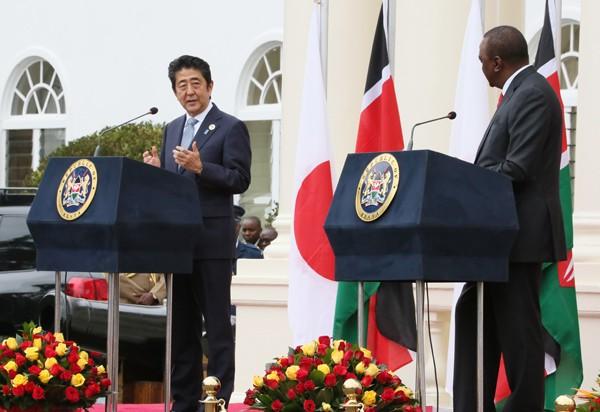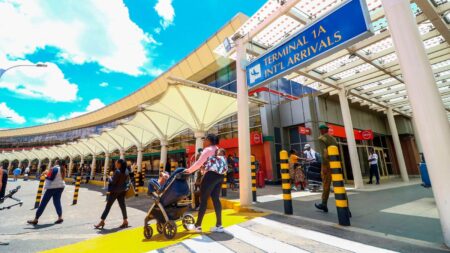The Japanese city of Yokohama prepares to host African leaders and business delegation during the Seventh Tokyo International Conference on African Development (TICAD7) will be held in Yokohama from 28th to 30th August 2019.
This is a Summit-level international conference on Africa’s development which was initiated by Japan since 1993. What is striking about TICAD is that rather than being a stage for bilateral relations between Japan and African countries, it uses a multilateral framework involving the participation of international organizations.
It is also broadly accessible to diverse stakeholders, including those from private enterprise, academia, and civil society, with the number of participants at TICAD VI held in Nairobi, Kenya exceeding 10,000. TICAD is also a place where African ownership is given serious regard.
In addition, follow-up meetings at ministerial level are held annually to enable the respective ministries to properly stay abreast of the status of ongoing projects resulting from commitments adopted at TICAD.
Speaking ahead of the summit, Achim Steiner, UNDP Administrator, commended Japan for its continued contributions to Africa’s development and pledged UNDP’s unflinching support.
“UNDP is committed to working with African governments, the Government of Japan, the private sector, and a range of other partners to realize a new, and more inclusive development vision for the people of Africa. I look forward to our meeting in Yokohama as we use TICAD’s 26 years of accomplishments and lessons to unleash Africa’s future of development”.
The Minister for Foreign Affairs of Japan, KONO Taro, noted that “with its expertise on African development accumulated over the years and its extensive networks at the local level, the contribution of UNDP will be crucial for further promoting the partnership between Africa and Japan. The Government of Japan will enhance cooperation with UNDP to strongly contribute to the growth and development of Africa by supporting the achievement of Africa’s own initiative, Agenda 2063, as well as the SDGs, which contain international targets to be achieved by 2030”. (chargedretail.co.uk)
Read also: Japanese business community to explore investment opportunities in Africa
At TICAD VI, Prime Minister Shinzo Abe announced that over the three years from 2016 to 2018, Japan would invest approximately 30 billion dollars under public-private partnership for the future of Africa centering on developing quality infrastructure, promoting resilient health systems and laying the foundations for peace and stability.
According to Dr. Ibrahim Assane Mayaki, the Chief Executive Officer of the New Partnership for Africa’s Development (NEPAD), Former Prime Minister of Niger, it is expected that TICAD7 will focus more on business aspects giving priority to business engagement.
“Holding the TICAD VI in Africa in August 2016 demonstrated the growing African ownership of the TICAD process, which attracted the attention of African States and all TICAD partners. The last TICAD has allowed for greater involvement of the AU structures in the TICAD process while providing Japan with a better understanding of Africa’s decision-making mechanisms and processes as well as priority areas, at the multilateral level and existing bilateral engagements.”
Africa is drawing expectations and attention from the international community as the “biggest frontier of the 21st century.” Africa, which embraces a population of more than 1.2 billion in 54 diverse countries, has huge market potential and abundant natural resources.
In recent years, since relatively stable political conditions have attracted foreign direct investment and expanded domestic consumption, the African economy has experienced significant change and dynamic growth.
And Japan has taken hold of African trade with more investments both in infrastructure and social footings. While comparisons have been drawn from their Asian counterpart China which has been aggressively pushing for a pie of the continent’s trade and resources.
On the flip side, Japan has reiterated that it pursues two major approaches to guide its relations with African countries, namely “quality growth (inclusiveness, sustainability, and resilience)” and “human security (capacity building focusing on each individual in Africa).”
In a statement in Japan In Africa website, it says, “It is essential in addressing development issues in Africa to achieve balanced and stable economic growth, whose benefits are spread to every corner of the society in Africa including the population living at or below the poverty line. In order to support such “quality growth” in Africa, Japan will further promote quality infrastructure investment, making full use of sophisticated technologies that Japanese companies possess.”











